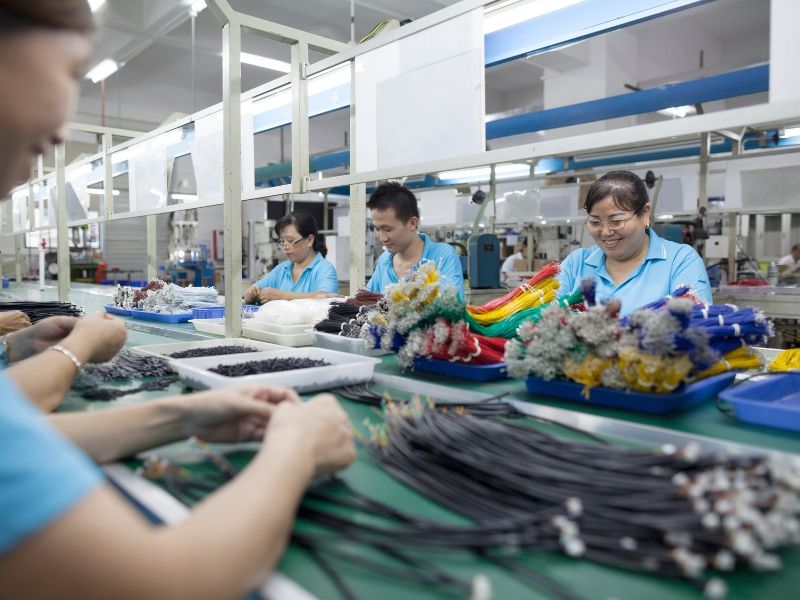
Vietnam’s economic landscape is characterized by dynamic growth, fueled by a diverse range of industries that drive its development. As one of the fastest-growing economies in Southeast Asia, Vietnam offers a compelling opportunity for businesses and investors alike. Understanding what are the main industries in Vietnam that power the economy is essential for navigating its business environment effectively. This deep dive into Vietnam’s major sectors aims to provide a comprehensive overview, shedding light on the key drivers, challenges, and opportunities within each industry. By gaining insights into Vietnam’s main industries, stakeholders can make informed decisions and capitalize on the country’s economic potential for sustainable growth and success.
Vietnam’s industrial sector has been a key driver of economic growth and development in recent years. The country has undergone significant industrialization and modernization, transitioning from an agrarian-based economy to one that is increasingly driven by manufacturing and industrial activities.
Read more: 3 Key Trends Shaping Vietnam Industrial Investments 2024
Read more: Prospects for the Best Emerging Countries to Invest in 2024
Despite its rapid industrialization, Vietnam faces challenges such as inadequate infrastructure, bureaucratic inefficiencies, and environmental concerns. Addressing these challenges will be crucial for sustaining industrial growth and attracting continued investment.
Opportunities abound in sectors such as high-tech manufacturing, renewable energy, and infrastructure development. Vietnam’s young and increasingly skilled workforce, along with its favorable business environment and strategic location, position it well for continued industrial expansion.
Vietnam’s major industries encompass a diverse range of sectors, with some of the key ones including the garment/fashion industry, food industry, electronics manufacturing, and agriculture. Let’s delve into each of these sectors:
Vietnam is one of the world’s largest exporters of textiles and garments, with the industry playing a significant role in the country’s economy and employment.
The sector benefits from Vietnam’s competitive labor costs, skilled workforce, and preferential trade agreements such as the EU-Vietnam Free Trade Agreement (EVFTA) and the Comprehensive and Progressive Agreement for Trans-Pacific Partnership (CPTPP).

However, challenges include increasing competition from neighboring countries, evolving consumer preferences, and pressures to adopt sustainable and ethical practices.
The food industry is another vital component of Vietnam’s economy, encompassing food processing, agriculture, and beverage production.
Vietnam is known for its diverse agricultural products, including rice, coffee, seafood, and tropical fruits, which contribute significantly to both domestic consumption and export revenue.

The sector faces challenges related to food safety and quality standards, technological modernization, and supply chain efficiency.
Read more: Potential Market of Food Producing Factory for Lease in Vietnam 2024
Vietnam has emerged as a key destination for electronics manufacturing, attracting investment from multinational companies in sectors such as semiconductors, smartphones, and consumer electronics.

The country benefits from a young and increasingly skilled workforce, competitive costs, and a strategic location that facilitates supply chain integration.
Challenges include the need for continued investment in infrastructure and technological capabilities to support the industry’s growth and competitiveness.
Looking ahead, Vietnam’s major industries are poised for continued growth, driven by factors such as ongoing industrialization, urbanization, and integration into global value chains. However, challenges remain, including the need for technological innovation, infrastructure development, sustainable practices, and adaptation to evolving market dynamics. Addressing these challenges will be crucial for sustaining the competitiveness and resilience of Vietnam’s main industries in the long term.
As industries such as garment/fashion, food processing, electronics manufacturing, and agriculture continue to drive Vietnam’s economy, it’s crucial to stay updated on market trends, regulatory changes, technological advancements, and competitive landscapes.
To navigate the complexities and capitalize on the opportunities within Vietnam’s dynamic industrial sectors, take action now by partnering with Savills Industrial Vietnam for comprehensive insights and strategic guidance. Stay ahead of the curve and unlock the full potential of Vietnam’s thriving economy.